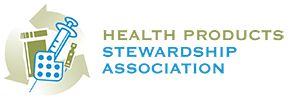The effects of probiotics go well beyond the intestines: of course, they optimize digestion at any age, but also develop the brain of the little ones, in addition to supporting their immune system, avoid embarrassing episodes in the bathroom and to prevent certain dermatological problems occurring at a young age.
Psycho-biotics
If it’s true that everything is determined before the age of six, it is best to start the supplementation early. And, once older and bigger, make probiotics a must for school! They are labeled psycho-biotic because they can help students who are experiencing anxiety, mental fatigue, confusion, etc.1
The strains included in Probaclac Children supplements are beneficial to cognition, attention, memory and even mood2. The brain and intestines are connected to each other by the nervous system, forming the magnificent gut-brain axis. The first affects the other, and thus, an imbalance of the intestinal flora can lead to an undesirable reaction to stress3. In a context of autism, the addition of probiotics like ours helps to rebalance a deficient intestinal microbiota, offering a complementary therapeutic option for students with this condition4.
The microbial profile differs from one child to another and greatly determines one’s level of physical and mental fitness. During childhood, the bacterial environment in the intestines can be altered by dietary restrictions or a monotonous diet, or by physiological or emotional stress.
Look for the best for your little darlings; a well balanced multi-stem formula, without allergens and not requiring refrigeration, as is the case of all Probaclac products.
REFERENCES
1Kali A. Psychobiotics : An emerging probiotic in psychiatric practice. Biomed J. 2016 Jun ; 39(3) : 223-4.
2Galland L. The gut microbiome and the brain. J Med Food. 2014 Dec ; 17(12) : 1261-72.
3Borre YE, Moloney RD, Clarke G et al. The impact of microbiota on brain and behavior: mechanisms & therapeutic potential. Adv Exp Med Biol. 2014 ; 817 : 373-403.
4Li Q et Zhou JM. The microbiota-gut-grain axis and its potential therapeutic role in autism spectrum disorder. Neuroscience. 2016 Jun ; 324 : 131-9.





